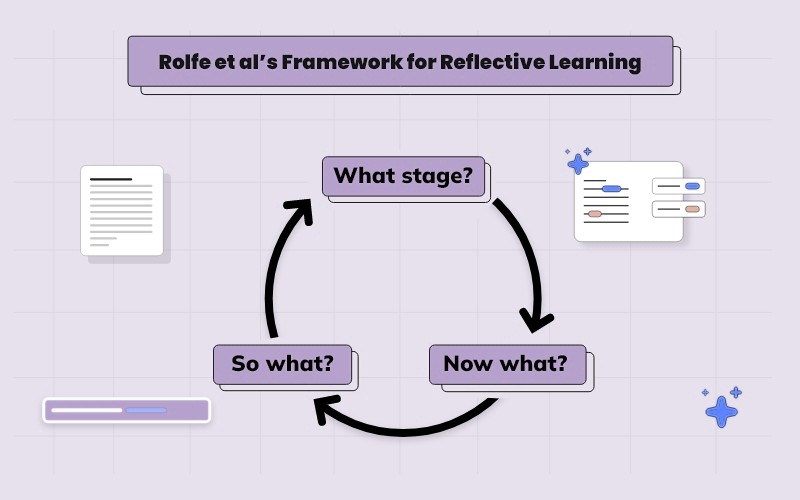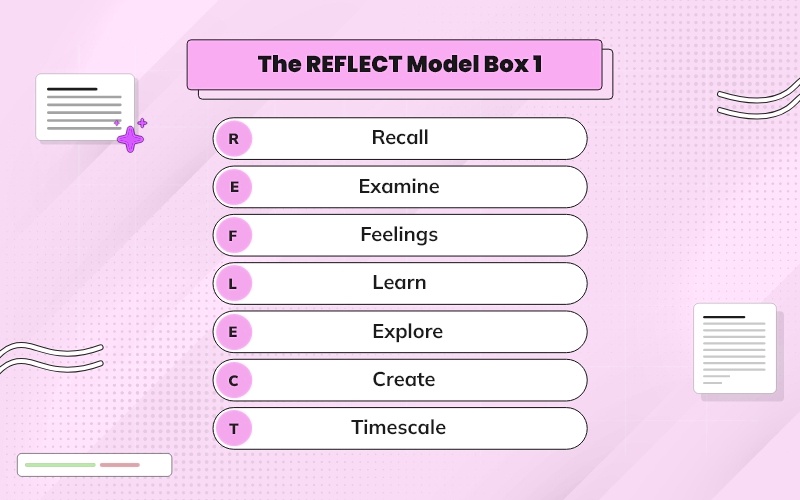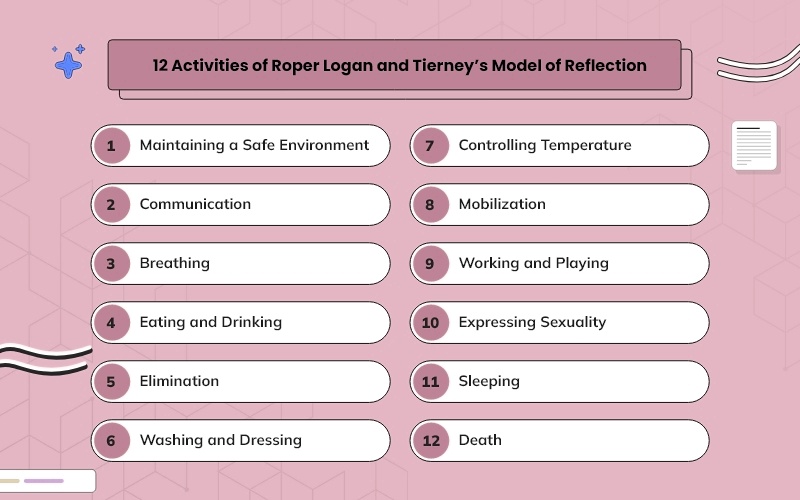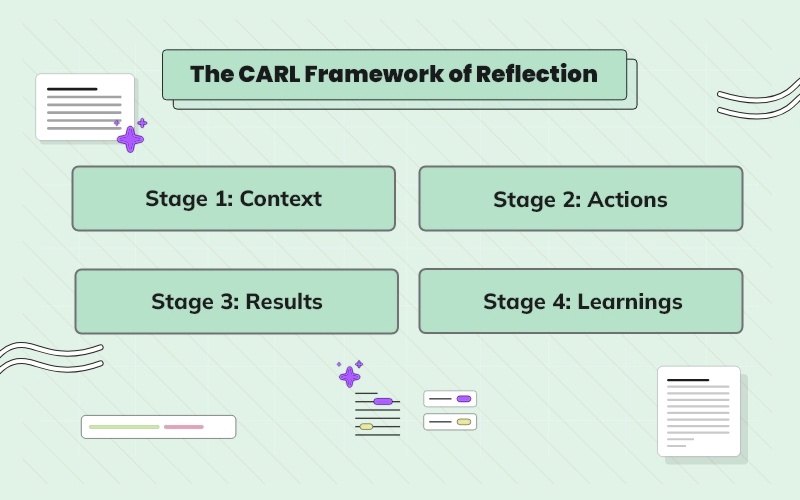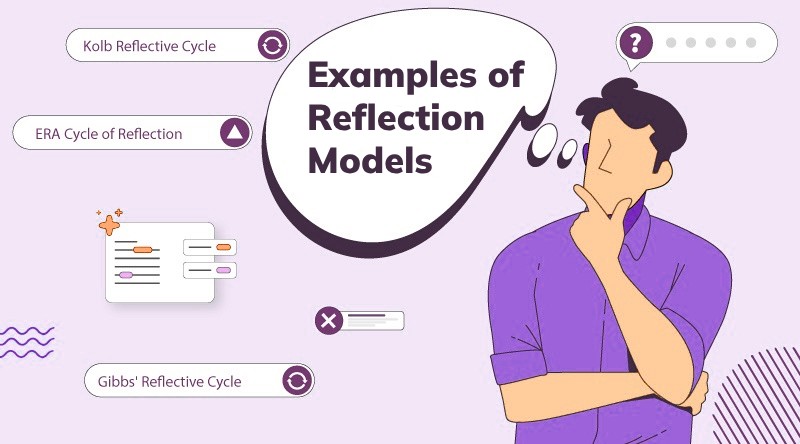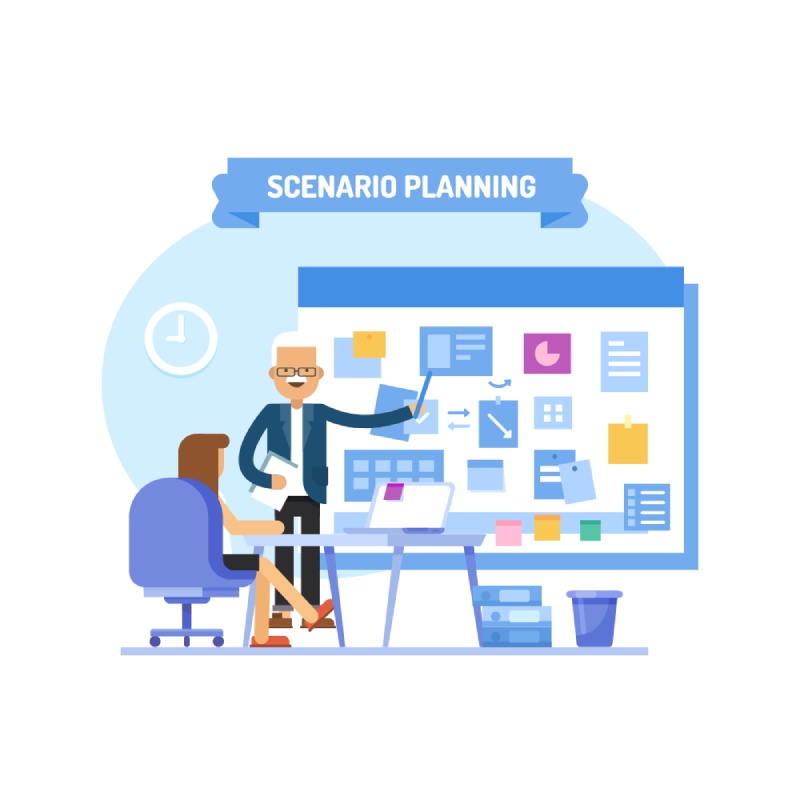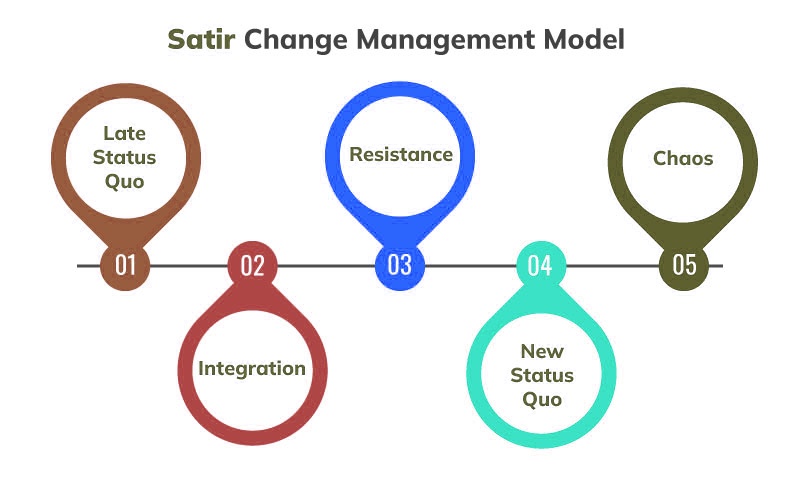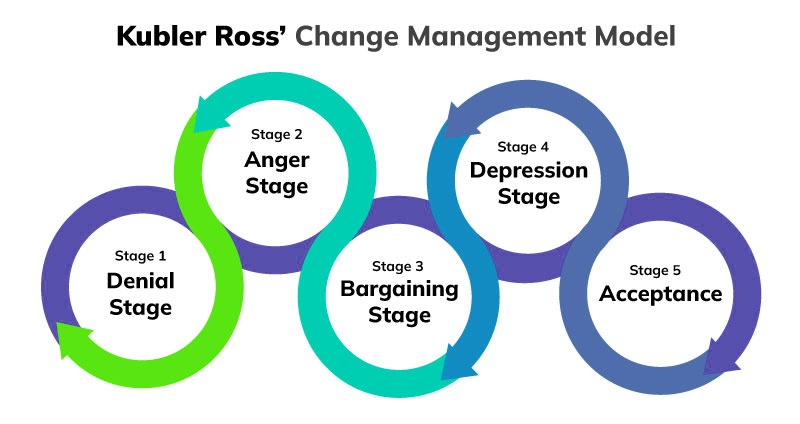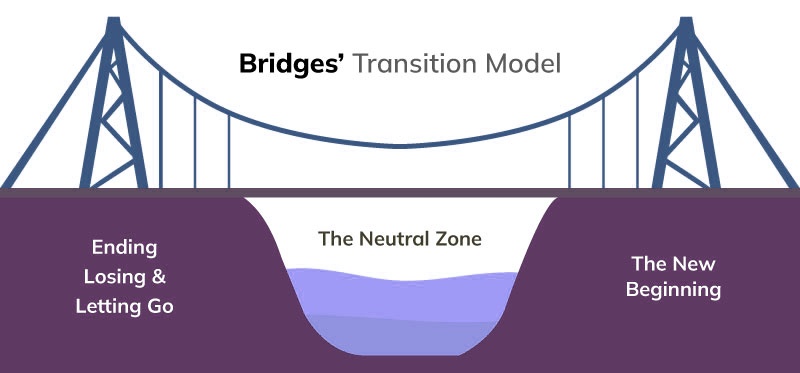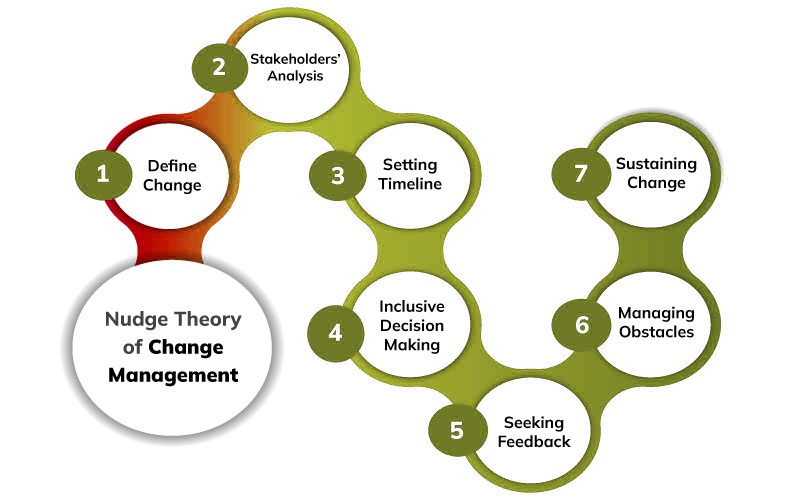Overview
Professor Gary Rolfe and colleagues gave a self-reflective model in the book ‘Framework for Reflective Practice’ in 2001. It is one of the simplest reflection models that helps to answer three simple questions i.e. What? So what? Now what? Now, you must be thinking that Rolfe et al’s framework is quite similar to Driscoll’s model of reflection. Then, what is the difference? The difference lies in questions considered in reflecting on using each model. Rolfe et al’s framework encompasses three phases which include descriptive, knowledge-building, and action-oriented.
Table of Contents
Three stages of Rolfe framework for reflection
Stage 1: What?
The first stage of Rolfe et al’s Framework is a descriptive phase that focuses on analyzing a situation. This stage of the model helps readers in explaining the context of the situation to the readers. This stage can be explained by determining the following
- What happened?
At this stage, you will explain the context of the situation to the reader by giving them factual information about the incident you reflect upon. - What did you feel?
In this, you are supposed to highlight the overall feelings you felt throughout the situation. - What did you and the others do?
While answering this question, you will highlight your and others’ contribution to the situation. - What were the expected outcomes?
In this, you will focus on the outcomes that you are expecting from the incident you are reflecting upon. - What were the results?
After explaining your expectations from the outcome, you will present the actual results of the actions you took in the situation. - What were the good and bad aspects related to the experience?
While answering this question, you will highlight both the positive and the negative impacts or sides of the experience you are reflecting on.
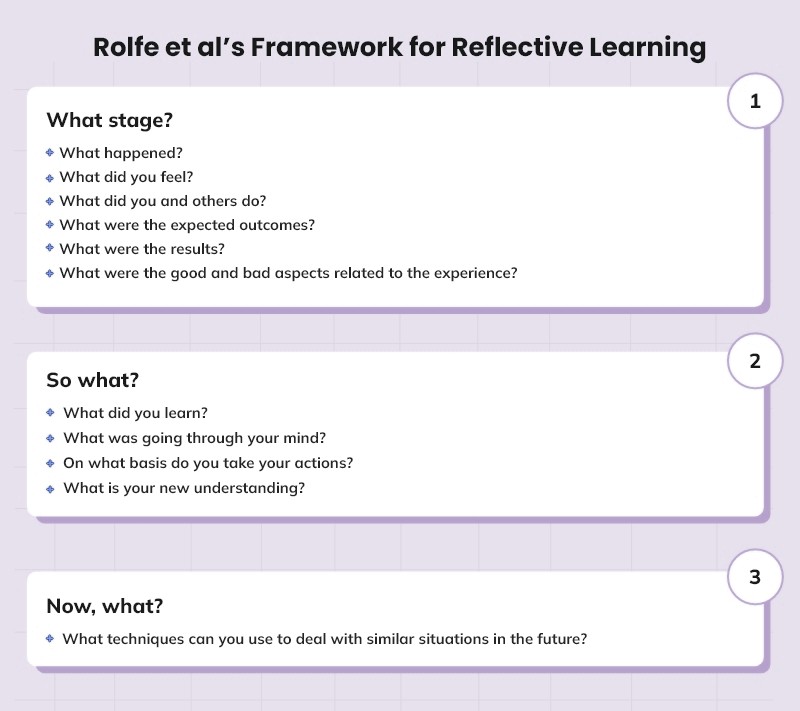
Stage 2: So what?
The second stage includes an analysis phase that focuses on determining the impacts or learnings of the actions. This section can be defined by the following questions.
- What did you learn?
In this, you will highlight your learnings throughout the situation you are reflecting on. - What was going through your mind?
While answering this, you will highlight the thoughts that were going through your mind during the occurrence of an event. - On what basis did you take your actions?
On what basis did you take your actions? - What is your new understanding?
In this, you will highlight the new learnings you gained from the situation and ways in which you perceived these learnings.
Stage 3: Now what?
This is the last stage of this reflective model which determines actions that can be taken to improve future outcomes. This stage includes consideration of skills that need to be developed to improve future actions. Also, in this stage, the individual can answer
- What techniques can you use to deal with similar situations in the future?
In this, you will highlight the ways in which you deal with situations like these in the future.
This model is specifically developed for reflective writing in nursing and health care as this model helps learners and practitioners in nursing and healthcare settings to improve the quality of care (Rolfe et al's, 2001). Now, let us take a situation of medication error to report and reflect on the learnings gained from this situation using Rolfe et al’s Framework.
References
Rolfe et al's (2001) Reflective writing: Rolfe, LibGuides. Available at: https://libguides.hull.ac.uk/reflectivewriting/rolfe (Accessed: November 23, 2022).


